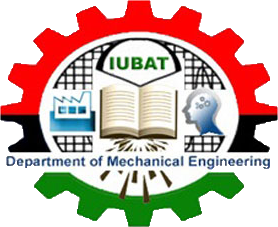Research & Publications
12
research centers
Rich
laboratories
BDT 20 Million
annual research budget
Research
The Department of Mechanical Engineering encourages both students and teachers to conduct fundamental and applied research to create knowledge in different fields including Aerodynamics and Fluid Mechanics, Bio-engineering, Bio-mechanics, Combustion, Design and Manufacturing Process, Dynamics and Control, Materials and Structures, Mechanics and Vibration, Heat Transfer, etc. As the mother of all engineering disciplines, we create knowledge through fundamental and applied research conducted by faculty and students. The research mainly focuses on the traditional areas of mechanical engineering and the local and global emerging issues. Our students and teachers also participate in different national and international competitions with their research projects. The Department of Mechanical Engineering provides professional, technical and research skills to its students. The faculties are encouraged and patronized to develop projects and provided with the required fund, guidance, and technical support in materializing the developed project proposals. The students under the department are also required to submit practicum report based on their research and field work.
Fund and Facilities
Research fund and facilities are provided by the IUBAT authority for functioning research activities. The authority always extends their support for all kinds of activities related to research in mechanical engineering fields. Fund is also received from national projects.
Dissemination of Research Findings
The faculties who conduct research work share their research findings across the whole community; the other faculties also provide feedback on the shared works. Such sharing and feedback culture enhances team work and enriches research knowledge in the respective fields.
Faculty Research
A. K. M. Foysal Ahmed & Ji Ung Sun
Bilayer Local Search Enhanced Particle Swarm Optimization for the Capacitated Vehicle Routing Problem
The classical capacitated vehicle routing problem (CVRP) is a very popular combinatorial optimization problem in the field of logistics and supply chain management. Although CVRP has drawn interests of many researchers, no standard way has been established yet to obtain best known solutions for all the different problem sets. We propose an efficient algorithm Bilayer Local Search-based Particle Swarm Optimization (BLS-PSO) along with a novel decoding method to solve CVRP. Decoding method is important to relate the encoded particle position to a feasible CVRP solution. In bilayer local search, one layer of local search is for the whole population in any iteration whereas another one is applied only on the pool of the best particles generated in different generations. Such searching strategies help the BLS-PSO to perform better than the existing proposals by obtaining best known solutions for most of the existing benchmark problems within very reasonable computational time. Computational results also show that the performance achieved by the proposed algorithm outperforms other PSO-based approaches.
Research on
A novel approach to combine the hierarchical and iterative techniques for solving capacitated location-routing problem
This study focuses on the capacitated location-routing problem (CLRP), which is a combination of capacitated facility location problem and capacitated vehicle routing problem. We propose a novel approach to find solutions for CLRP, a common version of location routing problem, founded in the literature. We have proposed an enhanced version of particle swarm optimization (PSO), a swarm inspired metaheuristic to handle CLRP. The proposed approach consists of unique assignment techniques of the customers to the opened depots and a tri-fold PSO based searching strategy which combines the influence of both hierarchical and iterative techniques in order to find near optimal solutions to a CLRP. Two folds of PSO are for maintaining the global view of clustering the nodes and the remaining PSO fold keeps the local nature of prioritizing route construction cost while making a complete solution of CLRP, thus proposed approach preserves the influence of both hierarchical and iterative methods. Experimental performance evaluation of the proposed approach is compared to other particle swarm optimization based methods to solve benchmark instances available in literature which show better performance of the proposed method.
Student Research
Research Courses
The university offers a number of courses that make the learners familiar with the research skills required to conduct research in mechanical engineering fields. The courses include Design of Machine Components, Project Evaluation Planning and Management, etc.
Research Initiatives
The department encourages the students to initiate researches in different areas both in narrow and wide scale. The worthy initiatives receive research grants.
Project Work/Submission
The department puts much emphasis on the development of maturity of knowledge acquired by the students. Learners are supposed to design and accomplish project works in many courses.
Publications
IUBAT Review
The IUBAT Review is a multidisciplinary academic jounal that the editors intend to publish annually.
Research Monographs
IUBAT has published a number of scholarly and distinguished research monographs.
Conference Proceedings
IUBAT, as a part of knowledge creation and knowledge sharing, encourages all forms of initiatives.

